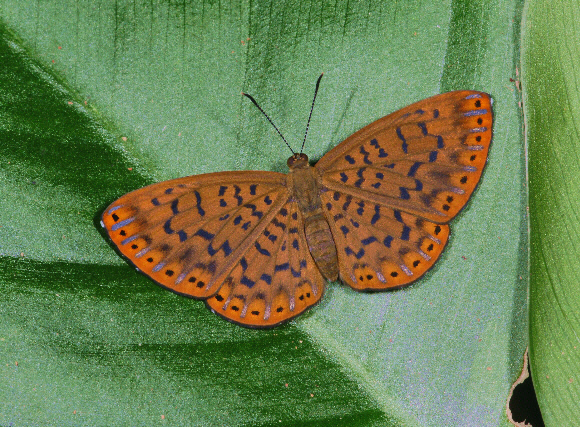 Metacharis lucius, female, Rio Madre de Dios, Peru – Adrian Hoskins
Metacharis lucius, female, Rio Madre de Dios, Peru – Adrian Hoskins
Introduction
There are 8 species in the genus Metacharis, all of which are confined to the neotropical region.All Metacharis species are sexually dimorphic, i.e. the males and females differ in colour and pattern. In the case of lucius the female is orange-brown, marked with a pattern of blackish squiggles, and has a series of metallic silver dashes and black dots around the wing margins. The males are much darker and similarly marked, but the pattern is overlaid and almost obscured by a deep blue sheen.
Metacharis lucius occurs east of the Andes from Guyana to southern Peru.
Habitats
This species is restricted to primary rainforest at altitudes between 0-1000m.
Lifecycle
The larval foodplant is thought to be Heisteria ( Olacaceae ).
Adult behaviour
The flight is rapid and erratic. Both sexes are usually encountered singly in light gaps. Males perch on the undersides of leaves or occasionally on the upper surface. They indulge in territorial sorties in the late afternoon. If disturbed they usually only fly a short distance, but often settle above head height so are difficult to observe. Females are active mainly in the early part of the afternoon.
